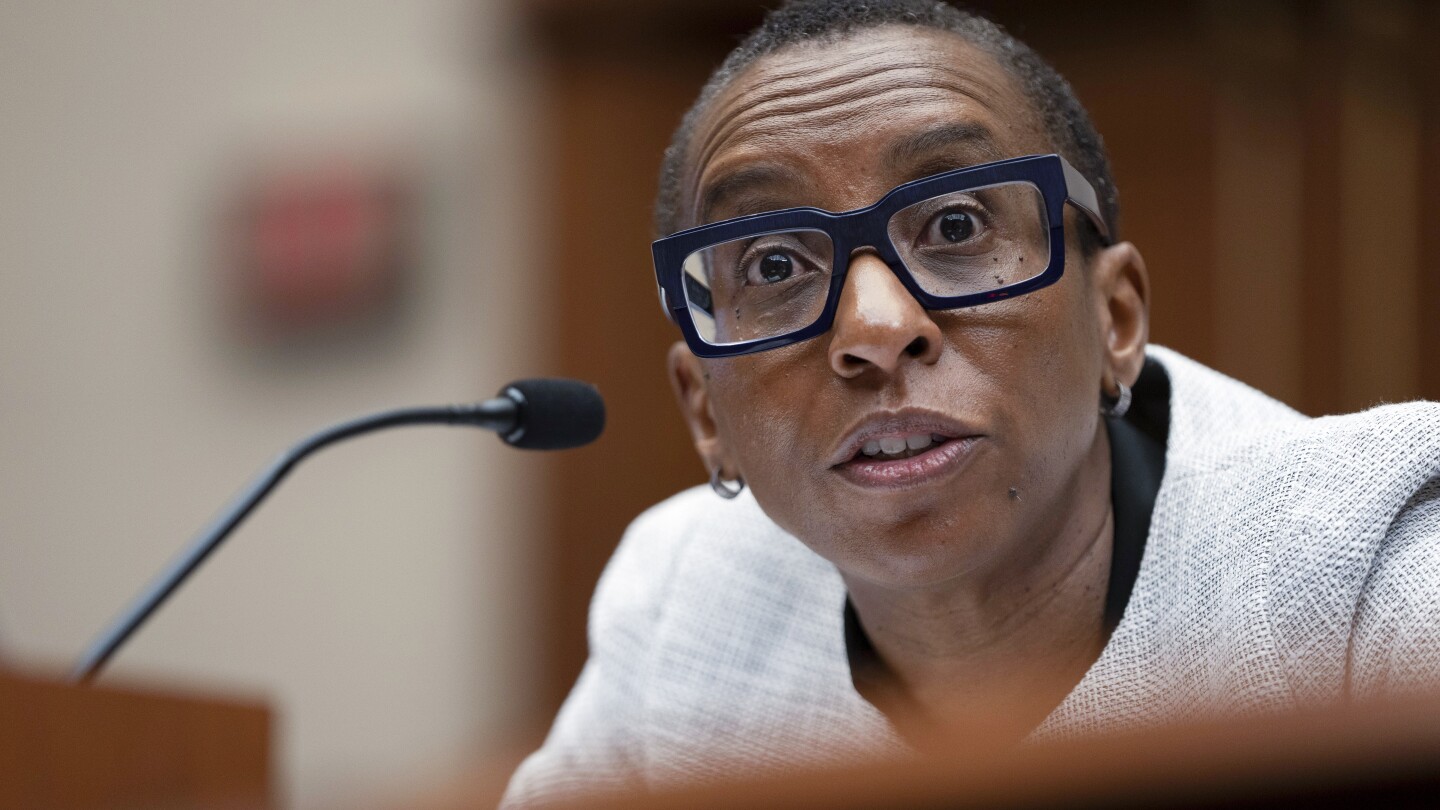Sayaras
Platinum Member
- Nov 13, 2023
- 4,375
- 2,460
- 928
Just as you thought, you heard all of her fraud ...
___

 apnews.com
apnews.com
BOSTON (AP) — Harvard University has shed fresh light on the ongoing investigation into plagiarism accusations against former president Claudine Gay, including that an independent body recommended a broader review after substantiating some of the complaints.
In a letter Friday to a congressional committee, Harvard said it learned of the plagiarism allegations against its first Black female president on Oct. 24 from a New York Post reporter. The school reached out to several authors whom Gay is accused of plagiarizing and none objected to her language, it said.
Harvard then appointed the independent body, which focused on two of Gay’s articles published in 2012 and 2017. It concluded they “are both sophisticated and original,” and found “virtually no evidence of intentional claiming of findings” that were not her own.
The panel, however, concluded that nine of 25 allegations found by the Post were “of principal concern” and featured “paraphrased or reproduced the language of others without quotation marks and without sufficient and clear crediting of sources.” It also found one instance where “fragments of duplicative language and paraphrasing” by Gay could be interpreted as her taking credit for another academic’s work, though there isn’t any evidence that was her aim.
It also found that a third paper, written by Gay during her first year in graduate school, contained “identical language to that previously published by others.”
Those findings prompted a broader review of her work by a Harvard subcommittee, which eventually led Gay to make corrections to the 2012 article as well as a 2001 article that surfaced in the broader review. The subcommittee presented its findings Dec. 9 to the Harvard Corporation, Harvard’s governing board, concluding that Gay’s “conduct was not reckless nor intentional and, therefore, did not constitute research misconduct.”
___
Plagiarism probe finds some problems with former Harvard president Claudine Gay's work
Harvard University has released a detailed account of its investigation into plagiarism allegations against former president Claudine Gay, who resigned this month over those concerns and her antisemitism testimony at a congressional hearing.
BOSTON (AP) — Harvard University has shed fresh light on the ongoing investigation into plagiarism accusations against former president Claudine Gay, including that an independent body recommended a broader review after substantiating some of the complaints.
In a letter Friday to a congressional committee, Harvard said it learned of the plagiarism allegations against its first Black female president on Oct. 24 from a New York Post reporter. The school reached out to several authors whom Gay is accused of plagiarizing and none objected to her language, it said.
Harvard then appointed the independent body, which focused on two of Gay’s articles published in 2012 and 2017. It concluded they “are both sophisticated and original,” and found “virtually no evidence of intentional claiming of findings” that were not her own.
The panel, however, concluded that nine of 25 allegations found by the Post were “of principal concern” and featured “paraphrased or reproduced the language of others without quotation marks and without sufficient and clear crediting of sources.” It also found one instance where “fragments of duplicative language and paraphrasing” by Gay could be interpreted as her taking credit for another academic’s work, though there isn’t any evidence that was her aim.
It also found that a third paper, written by Gay during her first year in graduate school, contained “identical language to that previously published by others.”
Those findings prompted a broader review of her work by a Harvard subcommittee, which eventually led Gay to make corrections to the 2012 article as well as a 2001 article that surfaced in the broader review. The subcommittee presented its findings Dec. 9 to the Harvard Corporation, Harvard’s governing board, concluding that Gay’s “conduct was not reckless nor intentional and, therefore, did not constitute research misconduct.”

